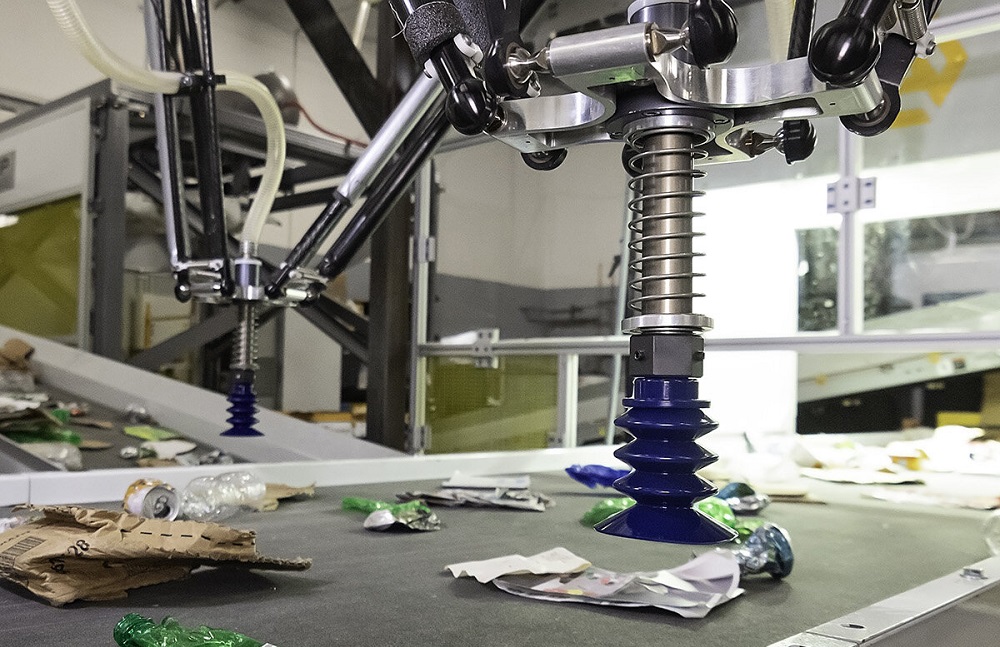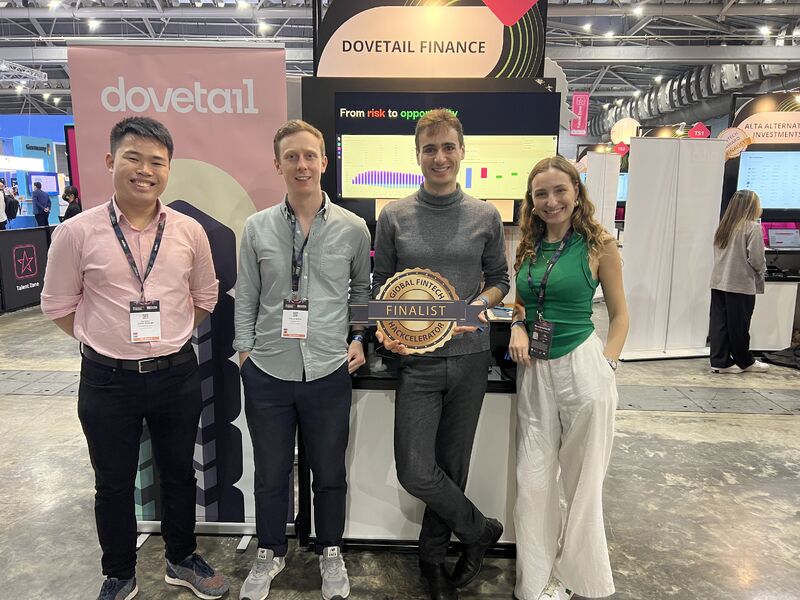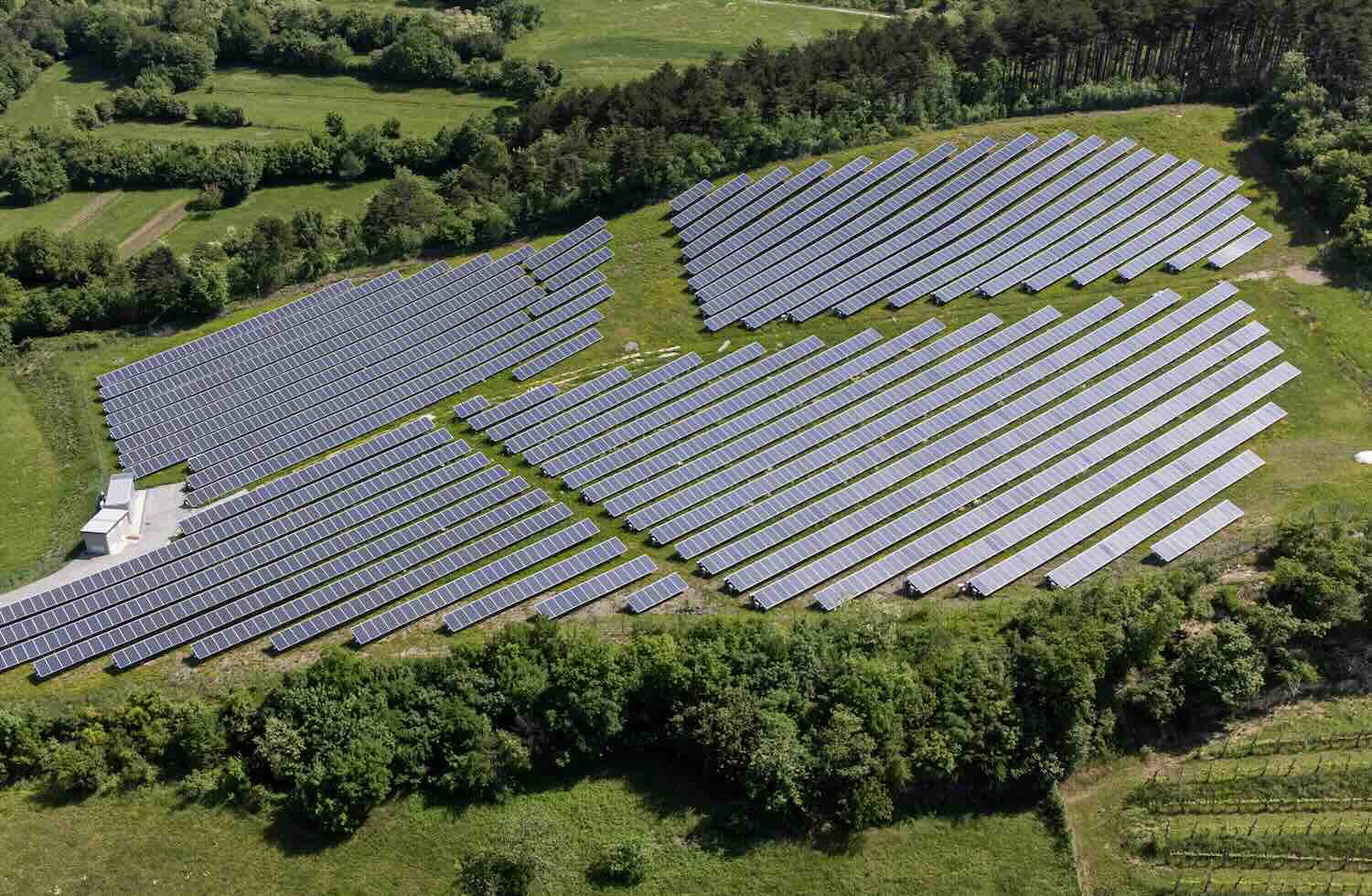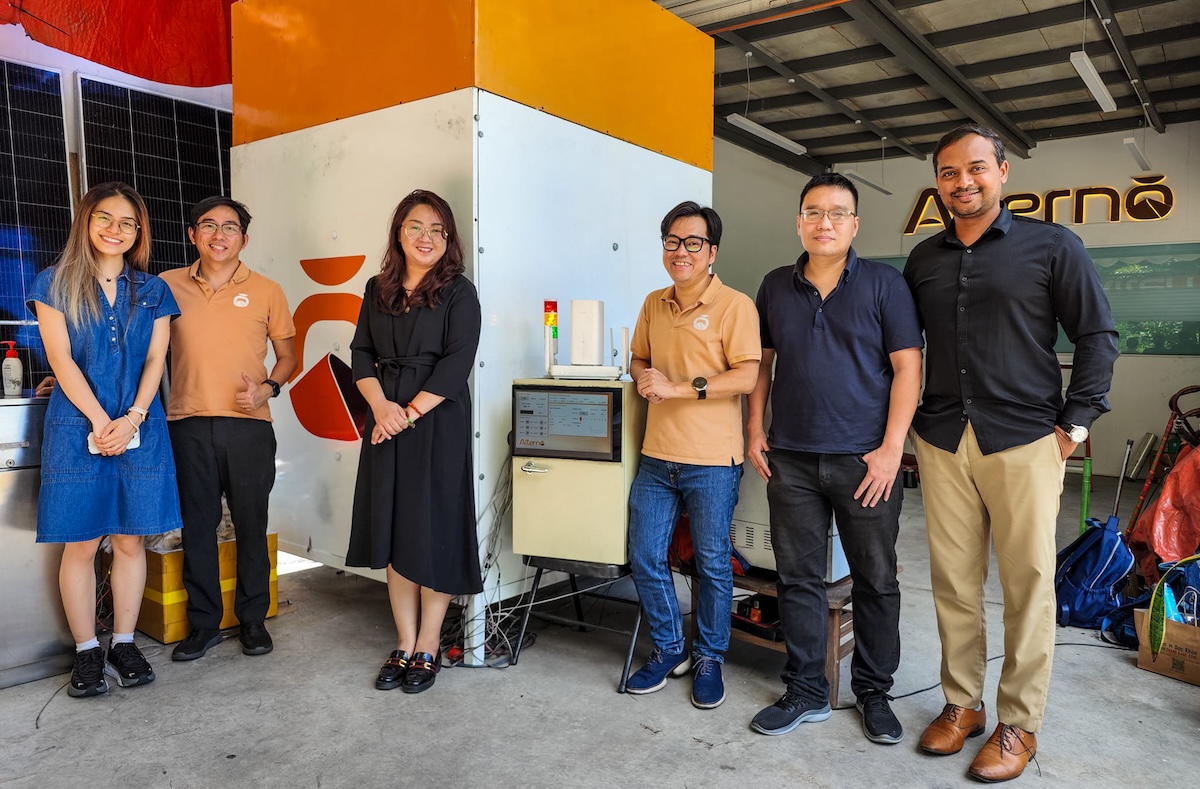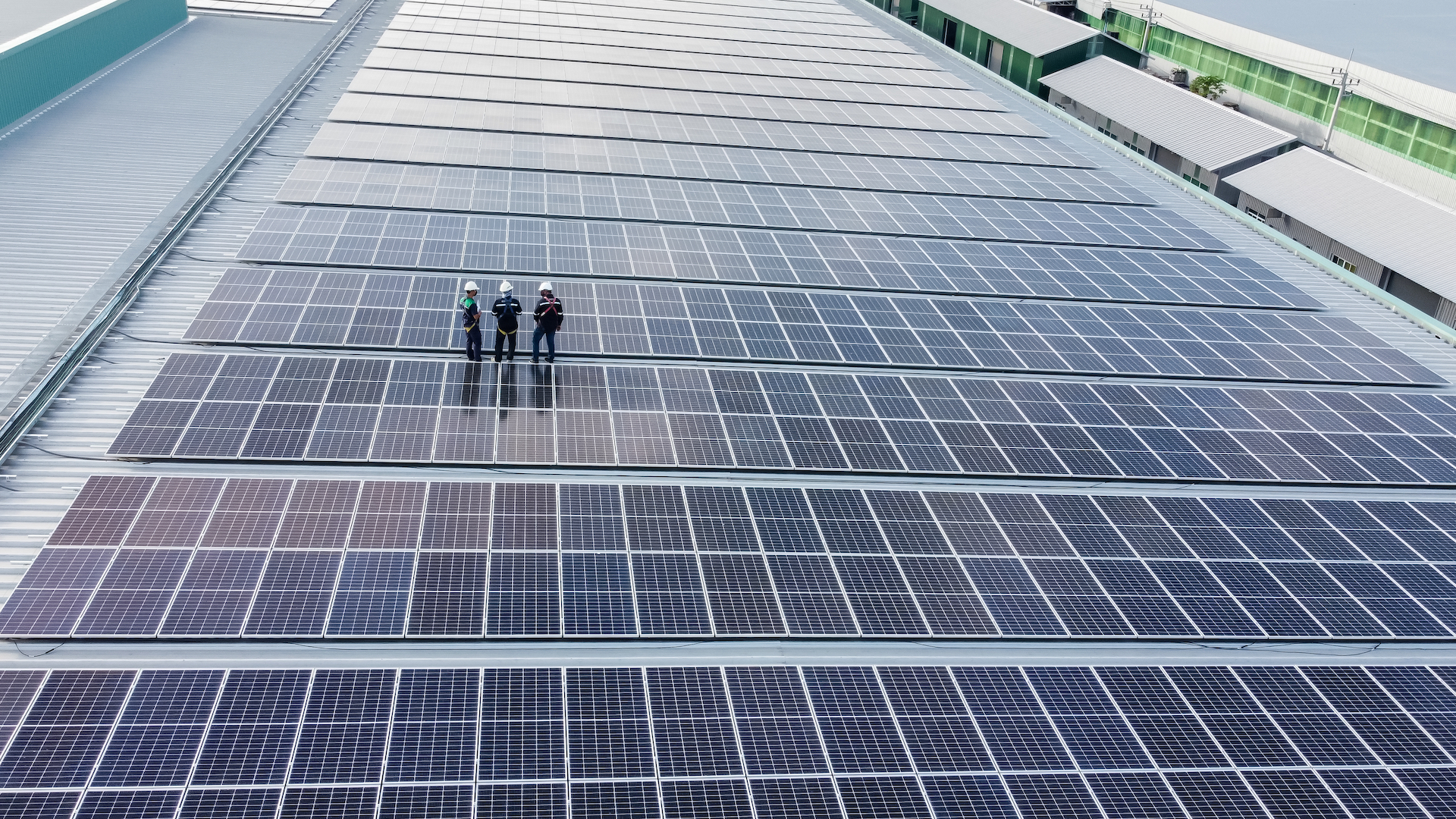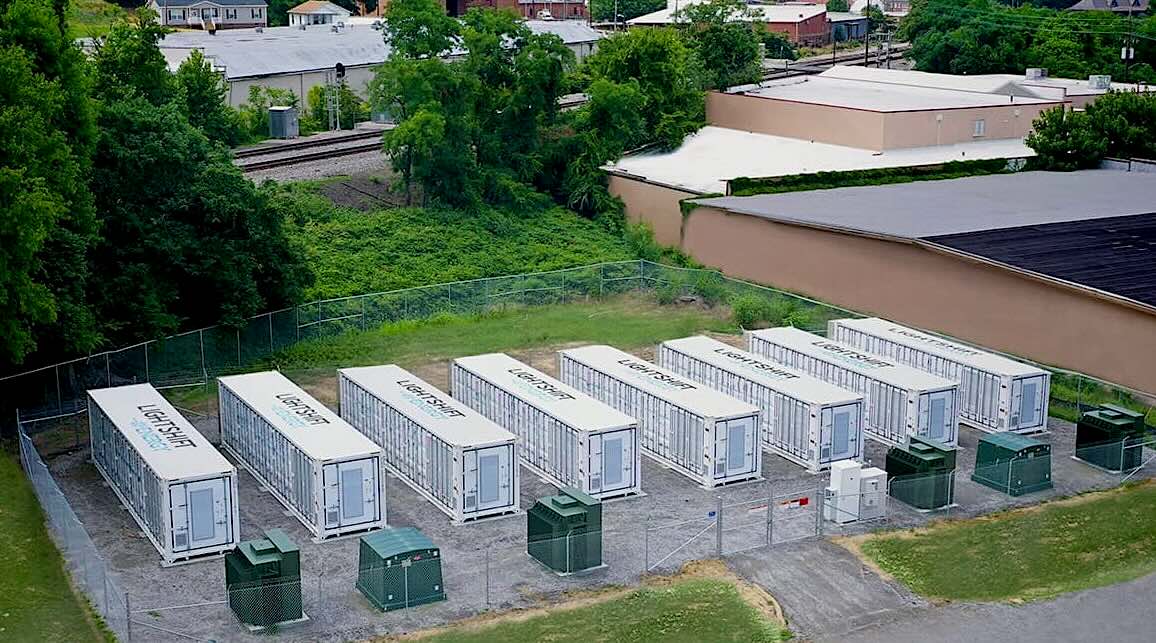ImpactAlpha, November 8 — Nearly two billion tons of waste have been dumped in the air, oceans, soils and waterways this year. The volume is projected to increase 70% by 2050. Climate investors see recycling as an opportunity not to be, well, wasted.
Wellington Management and Congruent Ventures led a $91 million Series C financing for Louisville, Colo.-based AMP Robotics, which is using AI and robotics to enhance recycling efficiency. AMP’s AI systems identify waste by color, texture, shape, size, pattern and even brand labels, helping its robots sort recyclable materials.
Participating investors include Blue Earth Capital, Sequoia Capital and Valor Equity Partners. AMP is building a fleet of 275 recycling robots.
Plastic-eating enzymes
Enzymes capable of breaking down plastic are joining the fray. The world produces nearly 419 million tons of plastic waste yearly.
Sydney, Australia-based Samsara Eco raised $54 million AUD (about $34.9 million) in Series A funding from Temasek, Assembly Climate Capital, DCVC, Clean Energy Finance Corp. and Breakthrough Victoria, the $2 billion investment fund of the government of Victoria.
Samsara’s enzyme technology breaks plastics down into their molecular building blocks to produce new products, a process that can be repeated infinitely.
The investment will fuel Samsara’s expansion into Europe and North America and support the construction of a new recycling facility in Melbourne that will go into full-scale production next year.
New Haven, Conn.-based Protein Evolution offers a similar enzyme-based recycling solution for the chemical industry. Protein raised $20 million, backed by Collab SOS, the climate fund of the Collaborative Fund, and New Climate Ventures.
Compostable packaging
Leonardo DiCaprio’s Regeneration.VC, alongside One Small Planet, One Ventures and SoundVentures, invested in Cruz Foam’s $18 million Series A funding round. The Santa Cruz, Calif.-based company is looking to replace single-use petroleum-based plastic packaging with compostable foam for consumer-packaged goods, electronics, appliances and durable goods companies.
The Series A investment “will allow us to accelerate and scale the commercialization of our circular materials,” said Cruz Foam’s John Felts.

